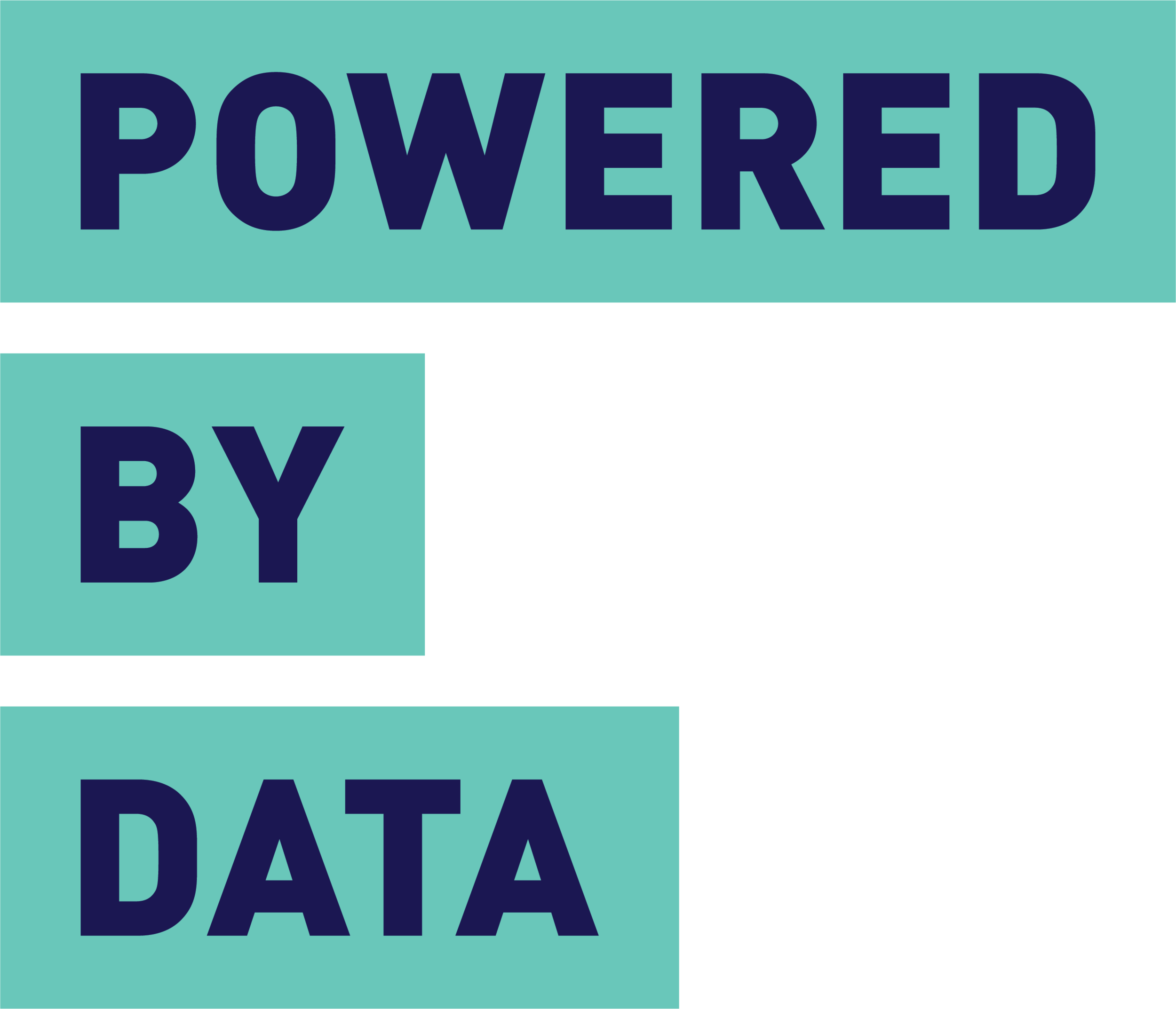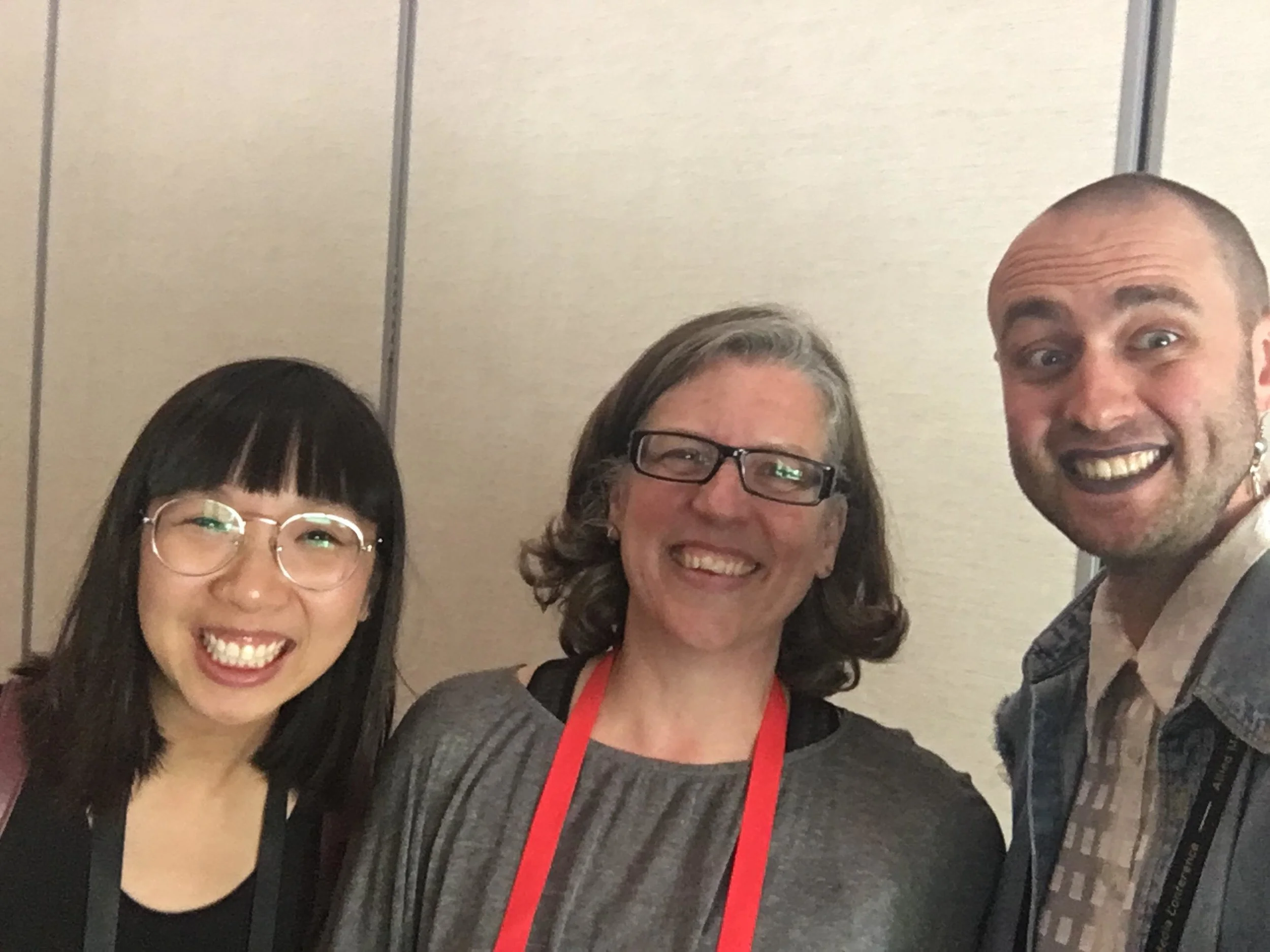Our favourite sessions on data and technology at the Allied Media Conference
A few weekends ago, some members of the Powered by Data team had the opportunity to attend the Allied Media Conference in Detroit, Michigan. This annual conference brings together technologists, artists, activists and media-makers who are working towards social change. A number of the sessions focused on data and technology. Here were some of our favourites.
Shaping Data, Shaping Power Panel Discussion
This outstanding plenary hammered home the historical—and ongoing—relationship between data, power, and oppression in society. Ruha Benjamin, Princeton University sociologist, highlighted the ways Black activists and intellectuals such as Ida B Wells and W.E.B. Du Bois have been using data in their work for more than a century—far before it was trendy. She also discussed the insidious nature of new data-based, algorithmic discrimination, calling this the “new Jim Code”—racial bias hidden under a veneer of objective, data-based neutrality.
During the panel, Detroit community organizer Tawana Petty discussed the connection between government data collection and state surveillance for racialized communities, expressing that communities “want to be seen—not watched”. She pointed to Detroit’s Equitable Open Data Guidelines as framework for ensuring that open data practices prioritize the interests of low-income, racialized, marginalized communities. The plenary also highlighted work being done by the team behind Appolition, a mobile app that converts spare change to bail funds—that has already managed to bail over 40 people out of prison since it launched in late 2017.
Our Data Bodies Workshop
Our Data Bodies is a a project examining the ways data on marginalized communities are collected, stored, and shared by government and private companies. Focusing on three marginalized neighbourhoods in Detroit, Charlotte, and Los Angeles, the community-based research project looks at how government data collection functions as another vehicle for state surveillance and discrimination—threatening poor and racialized people’s ability to find employment, access services, or secure housing. This workshop was a critical reminder that for communities at the margins of society, person-level data held by government can often pose more barriers than benefits.
Equitable Internet Initiative Tour
Forty percent of Detroit residents do not have broadband Internet access in their home. In an age where the Internet is crucial for communicating, learning, and finding employment, this palpable digital divide has significant consequences for underserved communities. The Equitable Internet Initiative (EII) is looking to address this new form of digital redlining with community-driven education and infrastructure development. The initiative trains local residents on wireless engineering through a twenty-week program. Some trained residents go on to be employed as digital stewards who install free internet access to local residents in their communities. On our tour, we had the chance to visit the three neighbourhoods where the initiative is taking place and meet local digital stewards.
For us, the tour underscored the critical role technology infrastructure can play in reinforcing existing economic inequalities. It also highlighted the power of community organizing and capacity building in creating a more equitable digital society.
* * *
Some other sessions we enjoyed during the jam-packed three-day program included one on Building Consentful Tech and another from the Technology for Social Justice Field Scan. So — what were our takeaways from the conference, and how do these sessions inform our work moving forward?
Our vision at Powered by Data is a society where governments, nonprofits, and civil society are using data to build a more equitable world. These sessions stressed that in order to get there, it is critical for us to address the ways in which modern technology and data systems are reinforcing historic inequalities. The sessions highlighted the knowledge and power that lies in communities on the ground affected by these systems—and the importance of working in collaboration with them when designing tech or data infrastructure. We look forward to integrating these approaches to how we shape our civil society coalition on administrative data-sharing policy in Canada!

